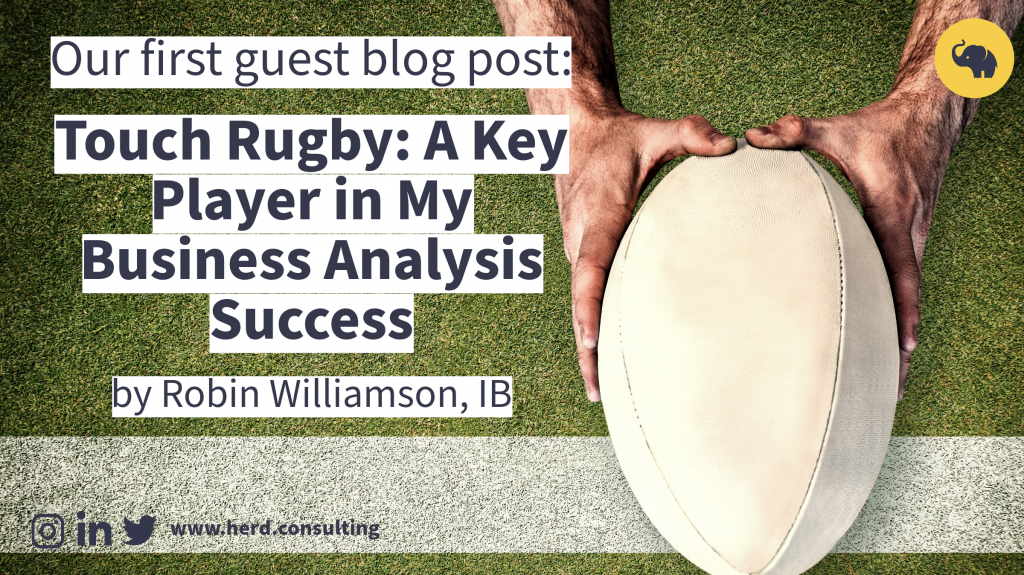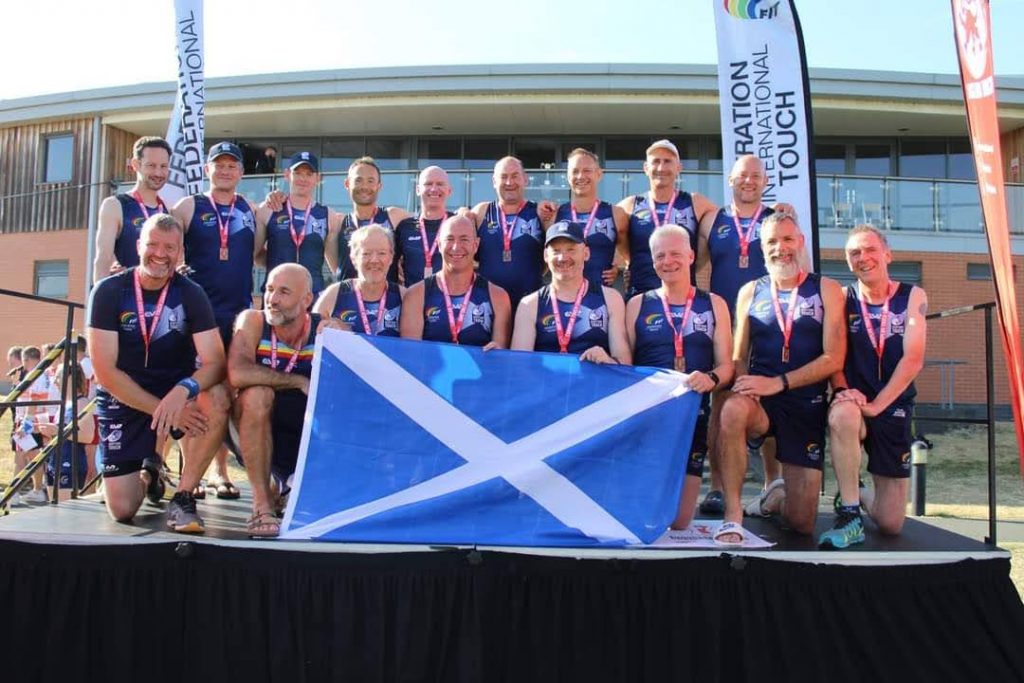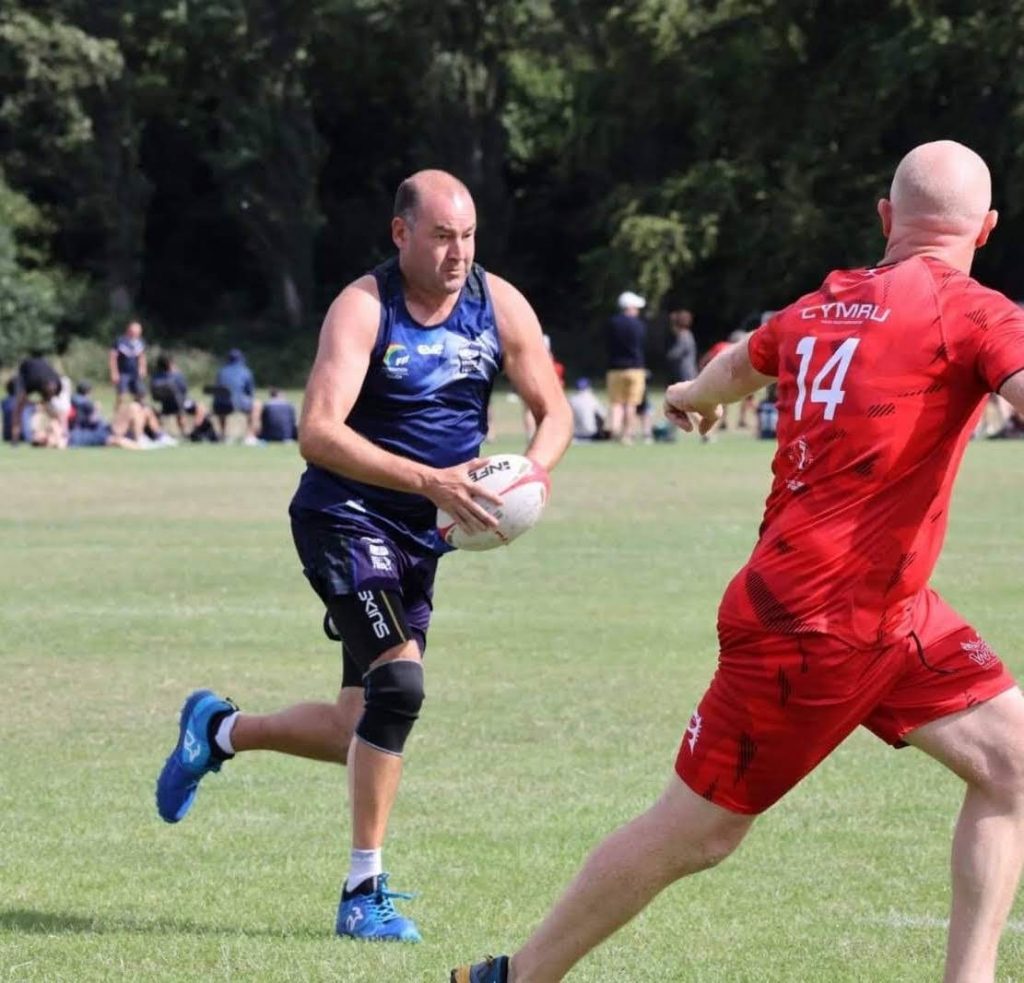
This is our first guest blog post in our hobbies x business analysis series. Well done to our friend of Herd, Robin Williamson. If you fancy giving writing a guest blog post a ‘try’, and joining our ‘union’ of growing guest bloggers then please get in touch. Rugby puns are optional.
In the world of business analysis, the ability to connect the dots, analyse data, question the norm, and facilitate effective communication between all stakeholders is invaluable. These skills are not solely acquired through textbooks or formal training; sometimes, they are cultivated on the sports field. For me, the sport that has played a pivotal role in develop my career as a business analyst is touch rugby. From the teamwork and communication on the field, the off-field analysis and preparation to the cultural values it instilled, touch rugby has been an unexpected but instrumental part of my journey. In this blog, I’ll share how my experiences in touch rugby have significantly contributed to my success in business analysis.
1. Teamwork is the bedrock:
Touch rugby is all about working cohesively with your team to achieve a common goal. Similarly, in the business world, cross-functional teams and collaboration are often the keys to success. The trust and camaraderie developed on the touch field have translated seamlessly into working effectively with colleagues from diverse backgrounds, departments, and disciplines. I see the Business Analyst role as being the facilitator between different stakeholders and to achieve the desired outcome for all stakeholders it is key that everyone focuses on the desired outcome and to achieve this the Business Analyst’s role is to knit everything together. The skills developed from a team sport transcend into the business world and help with improving the team dynamics.

2. Communication Skills:
In the world of touch rugby, clear and effective communication is crucial to organise plays, motivate the team, and ensure everyone is on the same page. It’s about more than just speaking; it’s about conveying ideas and plans succinctly. Over time, standing up in front of people and talking became natural, as did the art of articulating thoughts and ideas clearly and coherently.
When I transitioned into the field of business analysis, the communication skills I had developed on the touch field proved invaluable. In my touch role I play as a winger and the role is to marshal the defence, key track of touches and feed messages from the touchline referee onto the other players. On the touch pitch clarity of delivery and ensuring the correct message is passed on especially under pressure and fatigued is key to a successful outcome. In my Business Analyst role, I often find myself engaging with stakeholders, presenting findings, and facilitating discussions. The ability to communicate effectively with stakeholders is paramount in ensuring that business requirements are understood, documented, and acted upon. It’s also vital for conveying complex technical concepts in a way that non-technical team members can comprehend. These communication skills, cultivated through rugby, have allowed me to bridge the gap between business and technical teams, facilitating a more seamless and productive workflow.
3. Data in Touch Rugby:
As part of the Scotland Over 45’s men’s touch squad, data is the lifeblood of our performance. Every move, every play, and every decision are meticulously recorded and analysed. Our fantastic coach Iain has put an enormous amount of time into collecting and analysing data. We collect and study data on our own team’s performance from training and matches, as well as that of our opponents. This data-driven approach helps us understand our strengths and weaknesses, understand the moves in greater detail, and we can adjust our tactics in real-time in competitions.
For example, we rely on performance data to assess our fitness levels, recovery time, what the opposition are doing and the efficiency of our attack. We are using data to analyse past performance and using the 5 whys method understand where we can improve things or reduce mistakes. The data allows us to fine-tune our training methods, develop an effective playbook, and make decisions that maximize our chances of success. We are able to utilise the data collectively as a team to discuss problems and also individually to understand how you can perform better and contribute in your role within the team.
Similarly, in the world of business analysis, data is a critical asset. To make informed decisions and offer valuable insights, we need to gather, analyse, and interpret data. Whether it’s financial data, market trends, process data or customer behaviour, data is becoming more and more important. It informs our recommendations and helps businesses make strategic choices.
As a business analyst, I often find myself working with large datasets, conducting thorough data analysis, and using tools to visualize data effectively. Understanding data patterns, spotting trends, and deriving actionable insights are essential skills. The ability to connect the dots in data and tell a coherent story is akin to what I have learnt on the touch rugby pitch – data is nothing without context. We can use the data to sell the story about why change is needed and what the solution is.
What is interesting now is how technology has revolutionised analysis. In the world of professional sport, the performance analyst is key. Professional teams across all sports, including rugby, now use sophisticated cameras, wearables, and analytical tools to gain insights into players’ physical and tactical performance. The growth of data analytics in sports has inspired similar trends in business analytics, making data analysis an essential skill set for business analysts. The skills I’ve gained from studying and interpreting data as part of the Scotland Touch rugby squad are directly transferable to my work as a business analyst. Both fields require the ability to leverage data to make informed decisions, adapt to changing circumstances, and ultimately, achieve the desired outcome.
4. Resilience and Humility:
I have been lucky that playing touch rugby has delivered lots of successes both in terms of playing with a smile on your face and also tangible rewards like scoring a try in a world cup and winning bronze medals at European Championships but there is also the downsides such as injury, missing out on selection and defeats. This has taught me the value of resilience and the importance of getting back up after setbacks. Similarly, in business analysis, you encounter challenges and obstructions. Learning to persevere and continuously strive for improvement is an essential trait that I’ve gained from my touch rugby experience.

5. Honesty & Respect for All:
One of the most critical lessons from touch rugby is respecting opponents. After a match, the opposition becomes a colleague, sharing the same struggles and goals. This respect for everyone, regardless of their background or affiliation, is a value that carries over into my business analysis career. It’s an understanding that people from different departments and companies share common objectives and challenges.
Conclusion:
Touch rugby might not be the first thing that comes to mind when you think of skills required for a career in business analysis, but the sport has undeniably played a significant role in my professional journey. The teamwork, communication, planning, integrity, resilience, and respect instilled by touch rugby have been instrumental in shaping my career. It’s a testament to the idea that life experiences, whether on or off the field, can contribute to professional success. So, for those considering an unconventional path to a career in business analysis, perhaps the touch rugby field is a good place to start. It’s more than just a sport; it’s a training ground for the skills and values that can make you a effective business analyst.
If anyone fancies a brew and a natter about their hobbies and interests, or to even chat through our range of business analysis & product management services, drop us a message. We’ve got posh coffee (Darkwoods) and Chocolate Hobnobs.
🖊️ Authored by: Robin Williamson, Global Process Owner, International Baccalaureate
🎧 Favourite new singer: firekid – “An interesting mix of pop, folk and country”
For all the latest updates